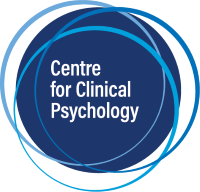The first article written on this blog, was about exploring what might be the best treatment for PTSD. Five years later the conclusions are similar.
Paula Schnurr, and colleagues (2022) compared prolonged exposure (PE) and cognitive processing therapy (CPT). They had a sample of 916 veterans with military-related PTSD. Participants were from outpatient mental health clinics at Veterans Affairs medical centres across the US.
The 916 participants consisted of:
455 participants who undertook PE
461 participants involved in CPT
They measured PTSD severity on the CAPS-5. They found that scores improved in both groups from before to after treatment. The mean improvement was greater in PE than CPT. But the difference was not clinically significant. Results for self-reported PTSD symptoms were comparable with CAPS-5 findings.
The difference between the two treatment types was statistically significant, but not clinically significant. What does this indicate? There is no clear ‘winner’. The authors concluded that:
“These findings highlight the importance of shared decision-making to help patients understand the evidence and select their preferred treatment.” (pg 2).
Client choice was highlighted earlier in this blog .
Share!
Facebook
Twitter
LinkedIn
WhatsApp
Tumblr
Pinterest
Email



